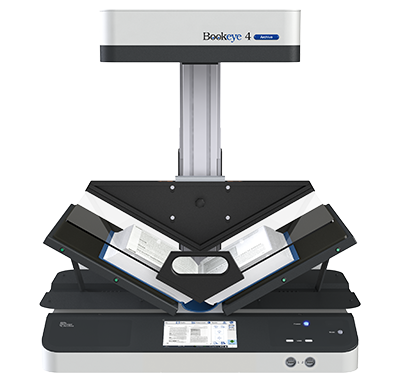How to Make Your Hardcopy Books and Documents Last a Lifetime
With every spring cleaning, job change, and every move or relocation to a new city, we get the urge to purge all our old favorites, to simplify and make room for all that’s new–books, drawings, posters, blueprints, and photographs. We get caught in the keep vs. toss conundrum. Books, memoirs, photo albums and scrapbooks all too old and ratty to hold on to, but too sentimental to throw out. Digitizing everything would make holding on to the memories easy and more fun, as we share and tag friends in our old yearbook pictures.
Sure, there are ways to prolong the life of the books, but in the end, a 20-year-old book is more fragile than a brand new one. We’ll give you tips so you can preserve your print materials and digitize them.
How to Preserve Books and Documents
Paperback and even hardcover books can be quite vulnerable to external factors, especially if they are used often. For all print material, both new and those that have been stored for a while, one thing remains constant: over time, they will inevitably succumb to the effects of environmental factors and start to waste away. And that’s only natural, considering that the materials used for making books are organic – they are affected by temperature, moisture, various microorganisms, and mold, all of which contribute to its inevitable decay. Still, there are ways to help them remain in good condition for longer.
Professional-Grade Book Covers
For valuable books and documents, store them using a professional-grade book cover. It not only protects the books from staining and folding but also helps to minimize the environmental factors since it protects the books from exposure. If cost is an issue normal book covers will also offer protection.
Storage Space
Choosing the right storage space for your books, manuals, and notebooks can make all the difference in keeping them in mint condition for longer. Open bookshelves are pure seduction for every booklover, but they leave the objects of our desire exposed to dust, light and humidity. Keep your favorites in bookcases with doors. Avoid humid and hot environments and try to keep the books in a cool, dry space. Closed cupboards can go a long way in preserving your favorite items.
Spine
It’s also essential to try and not damage the spine of a book – if the spine is damaged, the book becomes much more prone to tearing, and the pages can become loose or fall out. To avoid that, the books shouldn’t be opened too wide and they shouldn’t be placed downwards on the table when open. Store your books upright on the shelves or lie them flat to prevent the binding from coming loose. If you’ve already broken the spine of your favorite book, you can DIY fix a broken spine.
Keep Away Food and Drink
An obvious tip that can significantly prolong a book’s life is not using it near food and drink. One of the most common ways that books get damaged is by spilling drinks on it or leaving grease marks, which are all but impossible to get out once they set in.
All of these tips can be very helpful when protecting your books from wear. Still, accidents happen and the books do inevitably wear down over time, so the most viable solution for preserving your books is by making a digital copy.
Why Are Digital Books Worth a Try?
For many people, reading a digital book is just not the same, no matter how convenient digital readers might have become. But when storing large quantities of documents, manuals, and record books, it’s impossible to ignore the benefits it can offer.
They Last Longer
The most persuasive argument for digital books is their durability – if you store your books in a safe location like a secure server or the cloud, it will be accessible anywhere and won’t be exposed to any of the environmental or other risks that hard copy books have to endure.
They Take Up No Space
Another benefit of switching to a digital format is that you won’t have to allocate a significant part of your storage for your books. Everything will be conveniently accessible on your devices or the cloud, and you won’t need to spend a lot of money on overhead, storage maintenance or sorting the books to keep them in order.
They Are Easy to Use
Finally, digital books are now easier to read than ever before. Not too long ago, the best you could hope for when reading PDF books was sitting at your computer, which was not very convenient. Right now, digitized books can be accessed from any digital device, allowing you to access any information from any of the books at a moment’s notice.
How to Digitize Books and Documents
There are essentially three options to digitize your print materials.
Scan them Yourself
If you’ve decided that you want to digitize your books, you might be tempted to try and do it yourself. You’ll find scanning old photographs and memorabilia is simple enough. Scanning posters and larger items can be tricky with small scanners, as they’ll require manipulation after the scan to “paste” the images together again.
Scanning books though isn’t recommended. Typical home-office scanners are not designed to scan books. Not only is it tedious to scan page after page, but the binding of the books can break and the quality achieved makes you feel horrible for trying.
Send them to be scanned professionally
Professional scanners are V-shaped, designed specifically for books, to protect the binding and provide precise scans of the pages.

Therefore, your best bet is finding a professional book scanning service near you that can handle your books with care and deliver quality digitized books. They not only have all the necessary equipment for scanning different types of books but also know how to handle them so that the books themselves don’t suffer in the process.
Have them scanned professionally in your home (or workplace)
If you have sensitive documents that are confidential or personal, you can sometimes even order on-site scanning at your location. A team of professionals would bring their own equipment and set up on your premises and be done with the process in a matter of days.
Conclusion
To take care of your hard copies, store them in dry places far from food and be careful to not break the spine while storing or using books. If you opt to digitize your books, most professional scanners will provide you with PDF files with OCR technology allowing you to perform text searches and retrieve information in seconds. The PDF files can then be turned into EPUB files, desktop APPs, mobile apps or SCORMs for LMS integration. Ebook Formats Explained for Beginners can also help you understand the different formats more easily. If you have several books and want you can display books together in libraries. For a complete list of formats, see Kotobee’s list of Export Formats.
Read these posts.
11 Tips to Capture Family Stories
Turn Your Blog Posts into an Ebook in Minutes
Battle of the Titans: Self-Publishing vs Traditional Publishing












